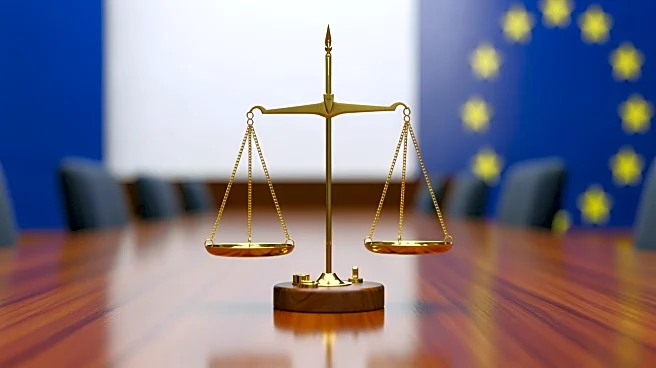What's Happening?
The European Parliament, as the first of the seven EU institutions, plays a pivotal role in the legislative process of the European Union. Established initially as the Common Assembly of the European Coal
and Steel Community, the Parliament has evolved significantly since its inception. It represents the interests of EU citizens and operates under the principle of representative democracy. The Parliament's legal status is defined by various articles in the EU Treaty and the Treaty on the Functioning of the European Union, which outline its legislative, budgetary, and supervisory functions. The Parliament's powers have increased over time, particularly following the Treaty of Lisbon, which enhanced its legislative and budgetary roles.
Why It's Important?
The European Parliament's role is crucial in ensuring democratic accountability within the EU. As a directly elected body, it provides a platform for EU citizens to influence EU policies and legislation. The Parliament's ability to adopt and amend legislative proposals, oversee the EU budget, and scrutinize other EU institutions underscores its importance in the EU's institutional framework. Its enhanced powers following the Treaty of Lisbon reflect the EU's commitment to strengthening democratic processes and ensuring that citizens have a voice in shaping the future of the Union.
What's Next?
The European Parliament will continue to play a central role in the EU's legislative process, working closely with the Council and the Commission to address key issues such as climate change, economic recovery, and digital transformation. The Parliament's upcoming elections will determine its composition and influence for the next five years, setting the stage for future legislative priorities. As the EU faces complex challenges, the Parliament's role in promoting democracy and human rights will be increasingly important.
Beyond the Headlines
The European Parliament's evolution from a consultative assembly to a powerful legislative body highlights the EU's commitment to democratic governance. Its role in shaping EU policies and legislation reflects the Union's efforts to balance national interests with collective goals. The Parliament's ability to influence international agreements and EU enlargements underscores its significance in global affairs. As the EU continues to integrate, the Parliament's role in fostering cooperation among member states and promoting democratic values will be crucial.










